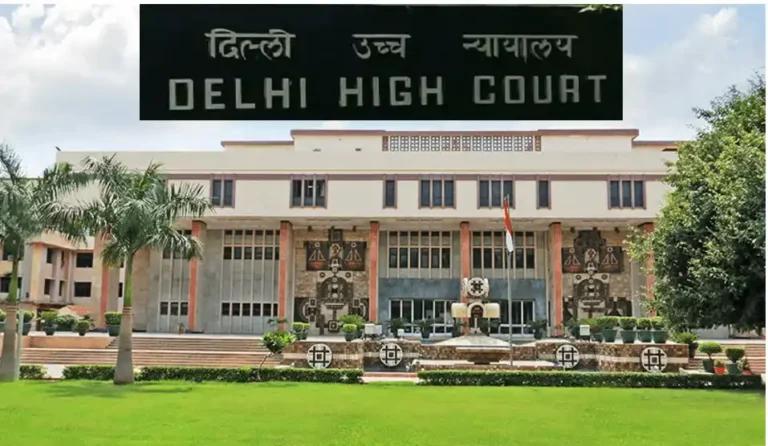The Delhi High Court, while dealing with a criminal contempt petition in a matrimonial case, emphasized the crucial role of lawyers in helping resolve disputes rather than escalating tensions through allegations. The Court addressed the issue after the husband misbehaved with his wife's counsel, leading to serious courtroom disruptions.
The matter was heard by a division bench comprising Justice Prathiba M. Singh and Justice Amit Sharma, who expressed strong concerns about the behaviour displayed during the proceedings. The Court reminded all parties involved, especially legal professionals, about the importance of maintaining dignity, peace, and professionalism in emotionally charged matrimonial disputes.
“This Court is conscious of the frustration and exasperation of parties, especially, in matrimonial disputes as their entire personal life comes to a standstill and they also experience emotional trauma. In such cases, human tendencies cannot be ignored by the Court.”
The Court also addressed the responsibility of advocates, noting that lawyers are not just representing a client but also serving the Court and society.
“Lawyers also have a great responsibility in such matters not only towards their own client but also towards the Court and towards the society as well. Peace and tranquility are extremely necessary. Lawyers ought to advise clients towards resolution of disputes rather than making and fueling allegations against each other.”
The case reached the High Court through a petition filed by the wife, seeking criminal contempt action against her husband. She also demanded six months’ imprisonment for his repeated contemptuous behaviour. The petitioner’s counsel alleged that the husband's actions were deliberate and obstructed the administration of justice.
According to the petitioner’s lawyer, the husband's disruptive conduct had a direct impact on the case's progress. She pointed out that the application for maintenance remained undecided due to his behaviour, and the Family Court Judge had to recuse himself from the case because of the misconduct.
The Delhi High Court had already found the husband guilty of criminal contempt in its earlier ruling dated 29 July 2024. It noted that he had verbally abused the opposing counsel and misbehaved during court proceedings, both in the High Court and the Family Court. Furthermore, the husband had failed to follow the court’s maintenance orders, further aggravating the matter.
“Various incidents had taken place during the Court proceedings both in the High Court and in the Family Courts, though, this Court is of the opinion that the entire blame cannot be put on the Respondent. There appears to be some circumstances which have provoked him to such behavior.”
“If there were any allegations against the counsels for the Petitioner, the Respondent ought to have adopted the proper course of action. Hurling abuses in Court would not be permissible.”
Despite the serious nature of the contempt, the Court acknowledged that the respondent had tendered an apology during the final hearing. He also expressed a willingness to pay Rs. 15 lakh to the petitioner as directed by the Court. This prompted the bench to discharge the contempt notice, taking a reformative approach while still reprimanding the inappropriate conduct.
“This Court also faced an enormous challenge in impressing upon the Respondent that he ought to fully comply with the orders passed by the Court.”
In addition to accepting the apology, the Court issued two specific directions to ensure accountability:
- The respondent was ordered to apologize orally to the wife’s counsel in open court.
- He was also directed to pay Rs. 1 lakh as costs to the petitioner.
These directions were aimed at restoring respect within the courtroom and discouraging such behaviour in future matrimonial disputes.
Case title: Shikha Kanwar vs. Rajat Kanwar (CONT.CAS.(CRL) 15/2023)














